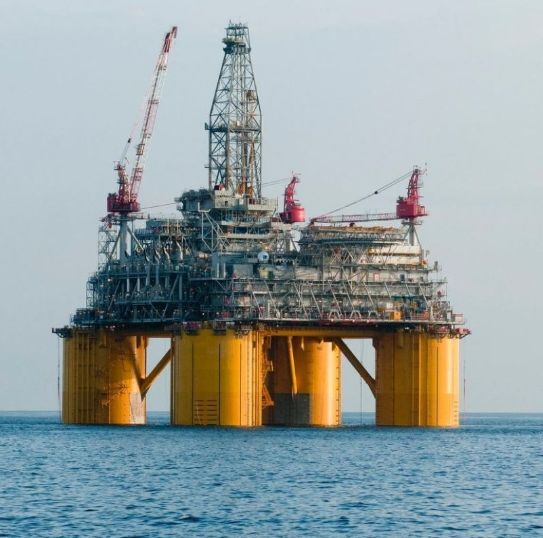Offshore drilling is consistently recognized as one of the top job opportunities accessible without a college degree, according to various business publications like Forbes and Yahoo!. For those familiar with offshore oil drilling, this is unsurprising. The role of an offshore driller has minimal entry barriers and offers compensation well above the average for similar non-degree roles. Typically, workers spend about half of the year on 12-hour shifts, rotating on and off for periods ranging from two to four weeks. However, offshore drilling is not for everyone seeking high-paying jobs with substantial growth potential. It is one of the most perilous, physically demanding, stressful, and isolating occupations, akin to working in a nuclear submarine or the International Space Station, but with greater risks.

Venturing into a Career as an Offshore Driller
If you believe you have the grit for the challenging yet highly rewarding realm of offshore drilling, here's how to start your career as an offshore driller.
What Does an Offshore Driller Do?
An offshore driller oversees and operates the equipment and machinery used in drilling for oil or gas in offshore locations, typically on oil rigs or platforms situated at sea. Their primary duties involve managing the drilling process, maintaining equipment, ensuring safety protocols are adhered to, and overseeing the crew’s operations. Specific responsibilities include:
Drilling Operations: Conducting drilling procedures by operating and controlling specialized equipment to extract oil or gas from beneath the seabed. This involves handling drilling machinery, directing drilling processes, and monitoring drilling parameters.
Equipment Maintenance: Maintaining and overseeing the maintenance of drilling machinery to ensure it operates efficiently and meets safety standards.
Safety Compliance: Enforcing and overseeing safety protocols to guarantee a safe working environment for the crew and prevent accidents or environmental hazards.
Supervision: Overseeing and managing the crew’s activities, including training, task assignment, and ensuring the team operates efficiently and safely.
Problem-solving: Resolving technical issues, addressing challenges, and making critical decisions during drilling operations to ensure productivity and safety.
Offshore drillers are essential in extracting oil and gas from beneath the seabed, and their expertise and oversight play a significant role in maintaining safe and efficient drilling operations at sea.

Education and Qualifications for an Offshore Driller
A high school diploma is generally the minimum educational requirement for entry into the field of offshore drilling. However, acquiring higher education, such as a degree in petroleum engineering, mechanical engineering, or similar technical disciplines, significantly enhances one’s prospects in this competitive industry. Technical training programs or apprenticeships offering hands-on experience are also valuable.
Gaining Experience and Essential Skills for an Offshore Driller
Entry-level positions, such as roustabouts or roughnecks, are common starting points for individuals aspiring to become offshore drillers. These roles provide a fundamental understanding of rig operations, safety procedures, and the basics of handling drilling equipment. To progress in the field, it’s crucial to develop technical skills such as equipment operation, troubleshooting, and maintenance, alongside demonstrating a strong commitment to safety standards and fostering teamwork.
Leveraging oil and gas drilling simulations can significantly complement hands-on experience, offering a risk-free environment to refine skills in drilling operations and safety protocols. Integrating these simulated experiences into training can enhance the learning curve and proficiency in handling critical situations encountered in offshore drilling.

Challenges and Rewards of an Offshore Driller
Offshore drilling presents a unique combination of challenges and rewards that define the industry’s landscape. This demanding field offers lucrative opportunities but demands a high level of skill, endurance, and adaptability from those involved.
Challenges:
Safety and Risk: Offshore drilling is recognized as one of the riskiest occupations. Workers face hazardous conditions, extreme weather, and high-pressure environments that demand stringent safety protocols and constant vigilance to prevent accidents and environmental disasters.
Physical Demands: The work is physically demanding and often performed in challenging environments. Workers endure long hours, demanding schedules, and laborious tasks in adverse weather conditions.
Isolation and Mental Strain: Offshore platforms can be isolated environments, requiring workers to spend extended periods away from family and friends. The isolation and mental strain from long shifts can take a toll on an individual’s well-being.
Environmental Impact: The potential for environmental damage, such as oil spills, remains a significant concern, necessitating strict adherence to environmental regulations and sustainable practices.
Rewards:
Financial Benefits: Offshore drilling offers significantly higher salaries compared to many other industries, providing substantial financial rewards for workers.
Career Advancement: It offers opportunities for career growth and skill development, allowing individuals to progress from entry-level positions to specialized roles with experience and expertise.
Technological Advancements: The industry constantly adopts cutting-edge technologies and innovations, providing workers exposure to the latest equipment and practices, fostering professional development.
Global Impact: Offshore drilling plays a crucial role in meeting global energy demands, contributing to the production of oil and gas essential for various industries and economies.
Summary
Embarking on a career in offshore drilling offers both enticing rewards and formidable challenges. It’s a field where financial incentives are substantial, career growth potential is real, and access to cutting-edge technology is constant. Yet, offshore drilling is also known for its high risks, physically demanding work, isolation, and environmental concerns.
Aspiring offshore drillers must equip themselves with the necessary skills, undergo practical training, and maintain a steadfast commitment to safety and environmental stewardship. The unique combination of skills, resilience, and dedication to safety is key to thriving in this dynamic and demanding industry, where the rewards are commensurate with the risks. Those who navigate these challenges with determination find not only financial success but also an industry that plays a vital role in meeting global energy demands, contributing to various sectors, and shaping the world’s energy future.
